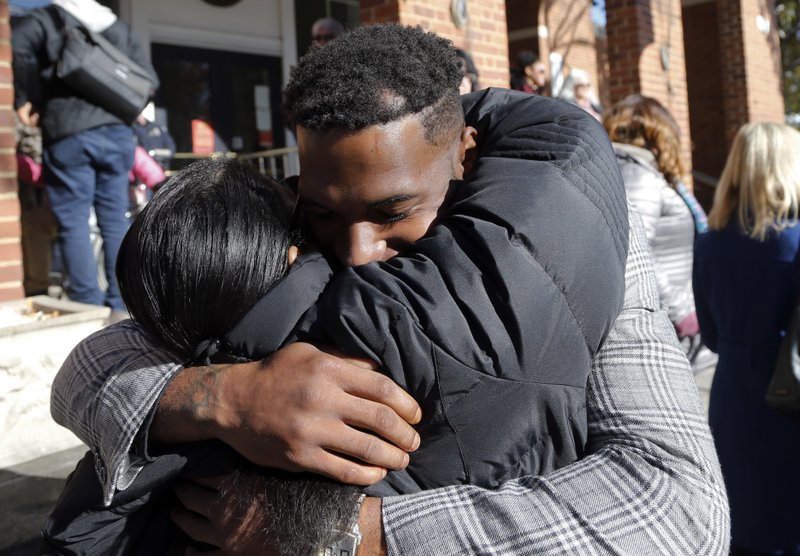CHARLOTTESVILLE, Va. -- Jurors told a judge Tuesday that life in prison is appropriate for a man who rammed his car into counterprotesters at a white nationalist rally, capping a trial laced with the emotional testimony of survivors and troubling details of the man's long history of mental illness.
James Alex Fields Jr., 21, stood stoically with his hands folded in front of him as a court clerk read the verdict, which now must be taken under advisement by the judge, who will issue the final sentence. Judge Richard Moore scheduled a sentencing hearing for March 29.
The jury recommended a sentence of life for first-degree murder in the killing of Heather Heyer, a 32-year-old paralegal and activist, and also recommended a total of 419 years for his convictions on nine counts involving injuries Fields caused to others and for leaving the scene of the crash in Charlottesville last year.
Fields, whose psychiatric disorders dating to early childhood were detailed in court by a mental health expert, did not deny that he intentionally accelerated his Dodge Challenger into a group of counterprotesters at the "Unite the Right" rally on Aug. 12, 2017. His lawyers contended that he was afraid for his safety and acted to protect himself. But jurors, in issuing 10 guilty verdicts last week, rejected that argument.
Heyer's mother, Susan Bro, said she was satisfied with the jury's recommendation, although she said her family and the survivors of the car attack will never be the same.
"The bottom line is justice has him where he needs to be," Bro said.
"My daughter is still not here and the other survivors still have their wounds to deal with, so we've all been damaged permanently, but we do survive, we do move forward, we don't stay in that dark place."
Judges in Virginia often impose the sentence recommended by juries. Under state law, they can impose lower sentences than what the jury recommends, but cannot increase them.
Before issuing its recommendation, the jury asked Moore if the sentences would run consecutively or concurrently. He replied that sentences usually run consecutively, but that jurors could recommend concurrent sentences if they chose to. They did not.
The jury deliberated for about four hours over two days before agreeing on a sentencing recommendation.
Commonwealth's Attorney Joseph Platania spoke of the need to reject violence and hate. He thanked the survivors of the attack for testifying about the pain and psychological trauma caused by the car attack.
"We are unable to heal their physical injuries or bring Heather back, but we are hopeful that they are able to take some measure of comfort and solace from these convictions and sentences," Platania said.
Bro thanked the jury, survivors, prosecutors and even Fields' defense lawyers for "trying to help the young man."
"But in the end the hands of justice say that he needs to be kept away from society for a while, and I'm content with that," Bro said.
Fields also faces a separate, federal trial over an array of alleged hate crimes related to the incident, including one offense that carries a possible death sentence. No trial date has been set in that case, and the Justice Department has not announced whether it will seek capital punishment.
In the meantime, Fields will wait in a state penitentiary, where an inmate who has served a certain amount of a sentence can petition for geriatric release after age 60. Otherwise, Virginia does not allow parole for felonies committed after the mid-1990s.
Information for this article was contributed by Paul Duggan of The Washington Post.
A Section on 12/12/2018
